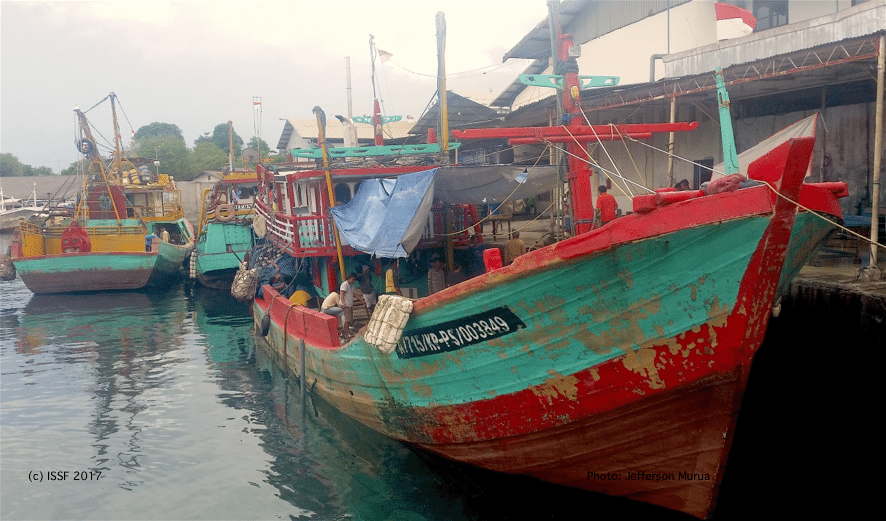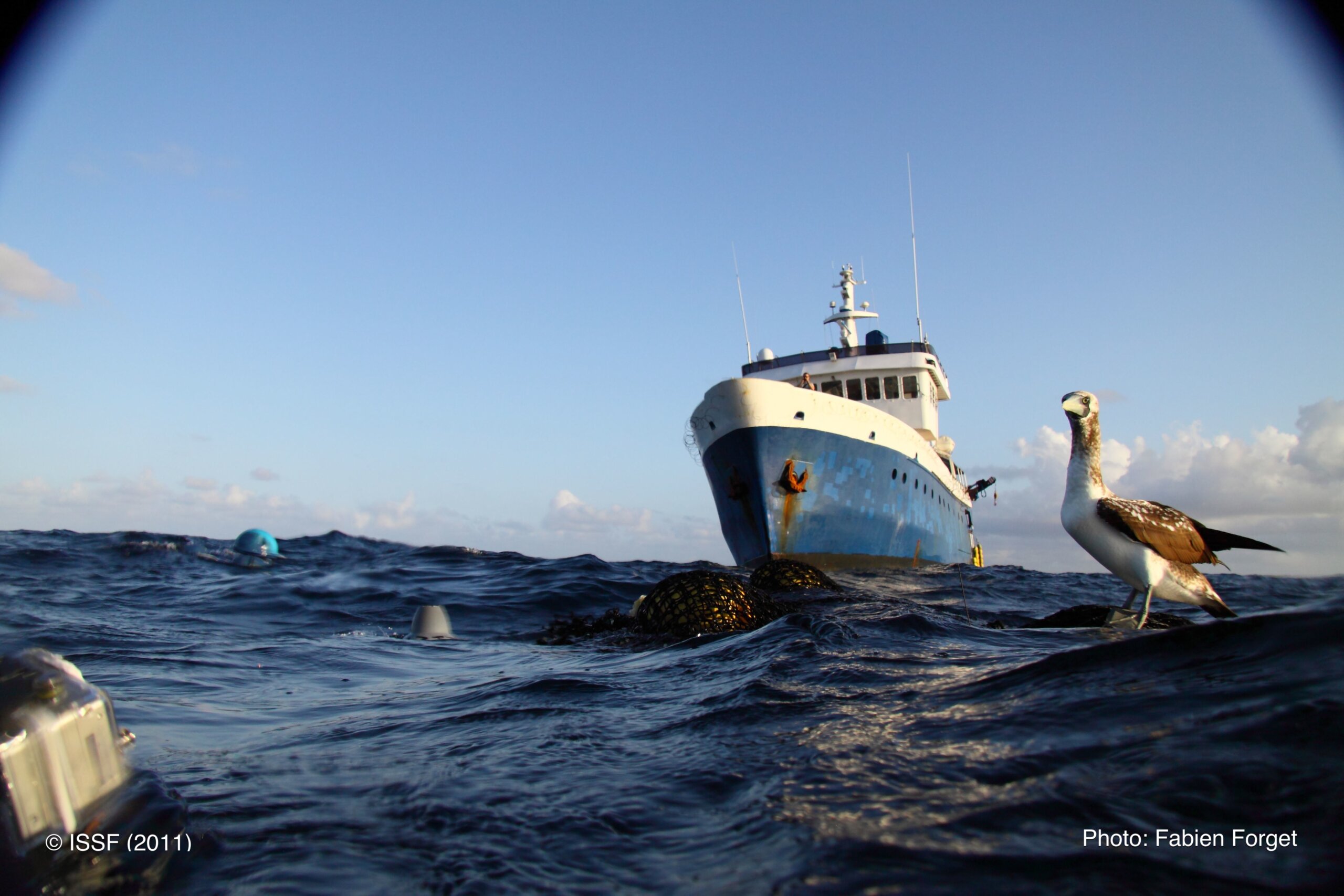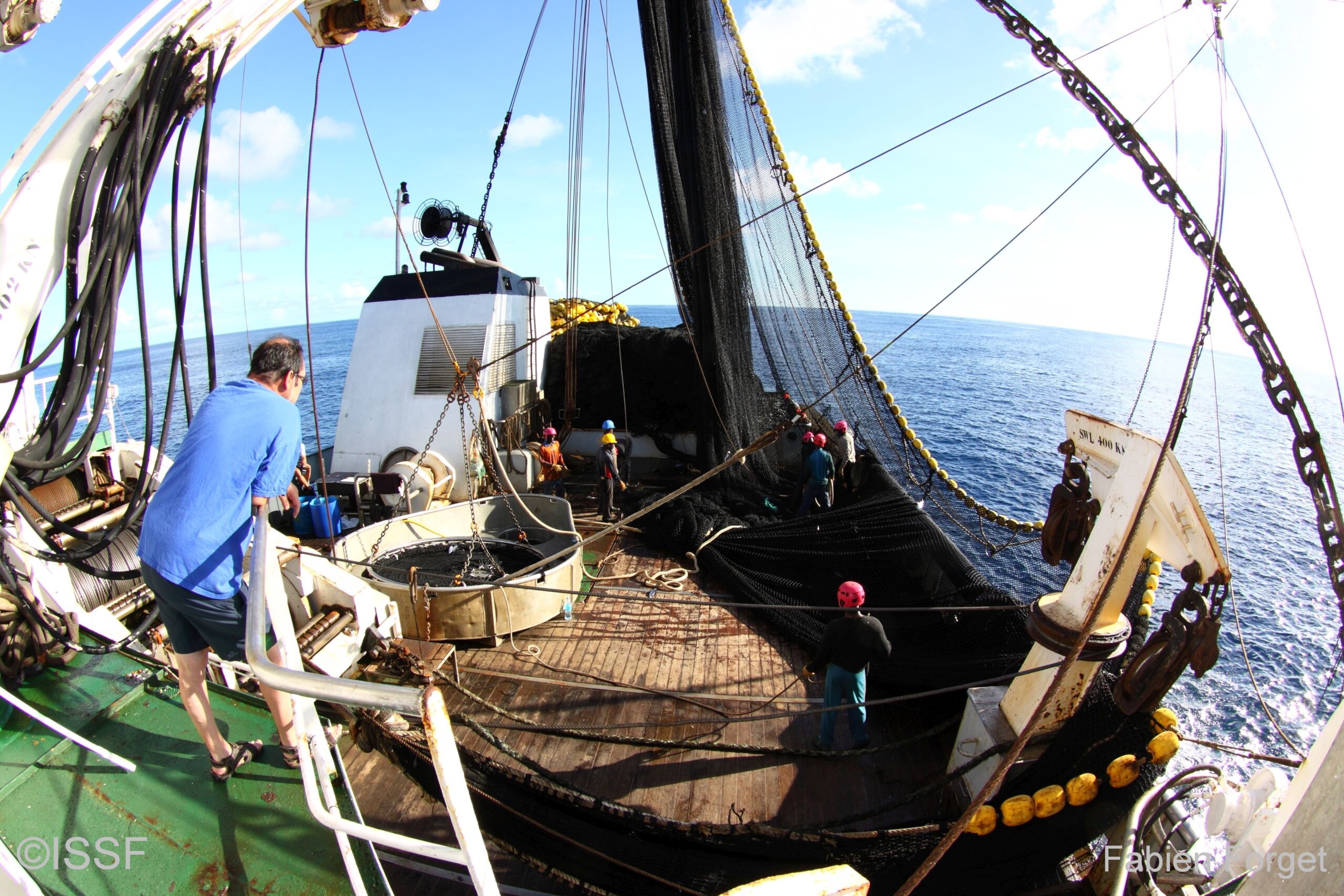
ISSF Skipper Workshops Reached Record-High Number of Tuna Fishers in 2017
The International Seafood Sustainability Foundation (ISSF) Skippers’ Workshop program marked its most successful year on record in 2017, reaching 794 participants, with tuna purse-seine skippers (457) and crew (238) comprising the majority (88 percent) of attendees. Other workshop participants included vessel owners and officials.
Since 2009, ISSF has been conducting workshops worldwide that unite fishers from tropical tuna fleets with scientists and other stakeholders to discuss methods for reducing shark and other bycatch, especially during Fish Aggregating Device (FAD) fishing. ISSF partners with AZTI, a Spanish technological research center for marine and food innovation, to conduct its skippers workshops.
#Tuna #fishers in ISSF workshops are increasingly accepting of more #sustainable methods. Share on XLast year, ISSF added new workshop locations, including Zhoushan, China and Ambon, Makassar, and Manado, Indonesia. Eighteen skippers workshops were conducted across 10 different countries, covering fleets in the Western and Central Pacific Ocean, Atlantic Ocean, Indian Ocean, and Eastern Pacific Ocean. Since their inception, ISSF workshops have attracted more than 3,000 participants — including more than 1,700 skippers, enough to put nearly two ISSF-trained fishers on each large purse seine vessel operating today.
Notable activities in and findings from 2017 workshops include:
- Rising acceptance of biodegradable FADs to reduce marine debris, with initiatives like the one in the Indian Ocean, Project BIOFAD, with participation from Spanish and French fleets
- Continued success in advancing the use of lower-entanglement-risk FADs and non-entangling FADs by fleets in three out of the four major tuna fishing regions
- Wide acceptance of best bycatch release methods, with some fleets applying them daily
- Fisher support for technology to remotely identify the presence of small bigeye and yellowfin tuna at FADs
- Discussion of options to reduce FAD impacts, including limiting FAD numbers, FAD closures, or prohibiting supply vessels
Now in its second year, ISSF’s “Train-the-Trainer” program in Indonesia reached small-vessel tuna purse-seine captains in seven workshops. These local trainers will enable the program to reach more skippers in remote locations across the archipelago.
“Our skippers workshops continue to be the best method for ensuring that our research findings on FAD management and bycatch reduction result in positive shifts on the water,” said ISSF President Susan Jackson. “Not only are we able to share best practices as we gain more scientific knowledge, but we are also able to gain valuable insight directly from the fishers who spend their working hours fishing for tuna. It’s education that goes both ways.”
All 2017 successes are outlined in the recently published ISSF Technical Report ISSF Skippers’ Workshops Round 7. The report includes details on each 2017 workshop, photos, and graphs showing fisher participation and acceptance of best practices. It also features a “Novel ideas and improvements for mitigation activities” section.
Skippers’ workshop attendance fulfills the requirement for ISSF conservation measure 3.4.


